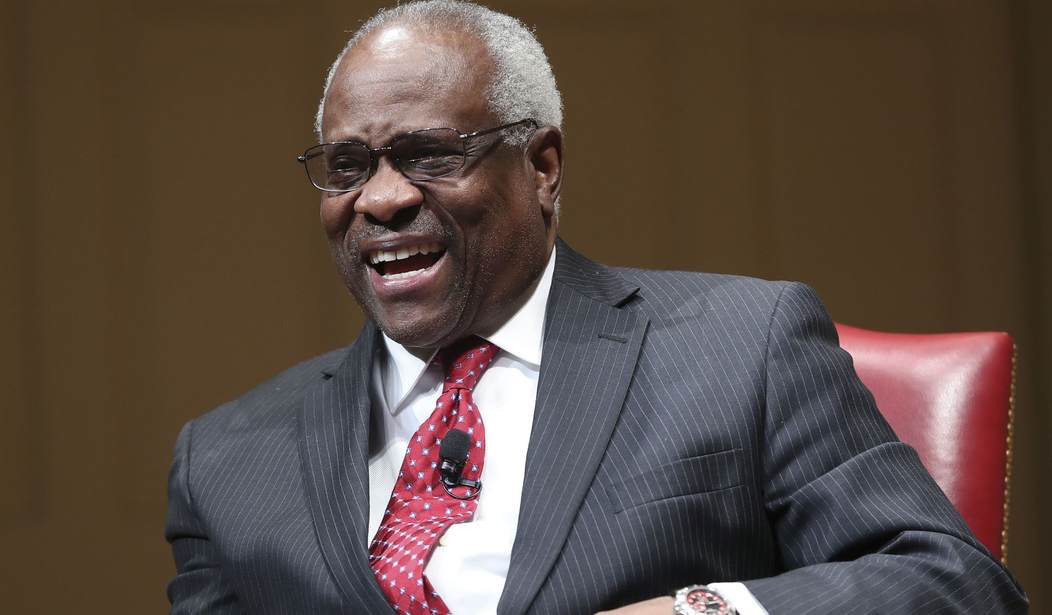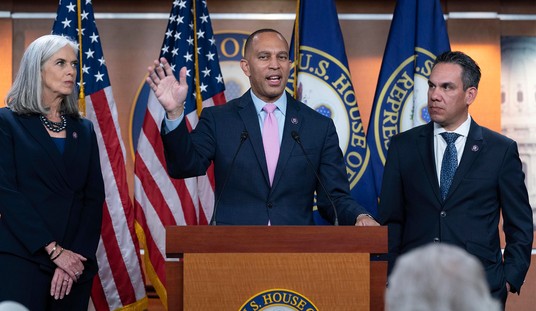Four years ago, Nebraska filed a motion in the Supreme Court seeking permission to file a complaint against Colorado over issues involving Colorado’s passage of legislation that legalized the recreational use of marijuana in contravention of federal law. Nebraska alleged that its interests as a state were harmed by that legislation.
The Supreme Court denied the motion.
Justice Clarence Thomas dissented from the denial, and he was joined in his dissent by Justice Samuel Alito.
Chief Justice Roberts, and Justices Scalia, Kennedy, Breyer, Ginsburg, Kagan, and Sotomayor were together in denying the motion.
Justices Scalia, Kennedy, and Ginsburg are no longer on the Court.
What Justice Thomas wrote in his dissent is something that I was not aware of until doing a bit of research on the claims raised by Texas, and looking more closely at the Supreme Court’s jurisprudence on its “original jurisdiction.”
The first paragraph of Justice Thomas’ dissent read as follows:
Federal law does not, on its face, give this Court discretion to decline to decide cases within its original jurisdiction. Yet the Court has long exercised such discretion, and does so again today in denying, without explanation, Nebraska and Oklahoma’s motion for leave to file a complaint against Colorado. I would not dispose of the complaint so hastily. Because our discretionary approach to exercising our original jurisdiction is questionable, and because the plaintiff States have made a reasonable case that this dispute falls within our original and exclusive jurisdiction, I would grant the plaintiff States leave to file their complaint.
As noted, by joining Justice Thomas’s dissent, Justice Alito signaled he agreed with Justice Thomas’s view on whether the Court must hear cases involving claims made by one state against another state.
Justice Thomas went on to explain his view:
Federal law is unambiguous: If there is a controversy between two States, this Court—and only this Court—has jurisdiction over it. Nothing in §1251(a) suggests that the Court can opt to decline jurisdiction over such a controversy. Context confirms that §1251(a) confers no such discretion. When Congress has chosen to give this Court discretion over its merits docket, it has done so clearly…. Compare §1251(a) (the Court “shall have” jurisdiction over controversies between States) with §1254(1) (cases in the courts of appeals “may be reviewed” by this Court by writ of certiorari) and §1257(a) (final judgments of state courts“may be reviewed” by this Court by writ of certiorari). The Court’s lack of discretion is confirmed by the fact that, unlike other matters within our original jurisdiction, our jurisdiction over controversies between States is exclusive…. If this Court does not exercise jurisdiction over a controversy between two States, then the complaining State has no judicial forum in which to seek relief. When presented with such a controversy, “[w]e have no more right to decline the exercise of jurisdiction which is given,than to usurp that which is not given.” Cohens v. Virginia, 6 Wheat. 264, 404 (1821) (Marshall, C. J.).
Nonetheless, the Court has exercised discretion and declined to hear cases that fall within the terms of its original jurisdiction…. The Court has even exercised this discretion to decline cases where, as here, the dispute is between two States and thus falls within our exclusive jurisdiction…. The Court has concluded that its original jurisdiction is “obligatory only in appropriate cases” and has favored a “sparing use” of that jurisdiction…. The Court’s reasons for transforming its mandatory, original jurisdiction into discretionary jurisdiction have been rooted in policy considerations. The Court has, for example, cited its purported lack of “special competence in dealing with” many interstate disputes and emphasized its modern role “as an appellate tribunal.”…
I have previously applied the Court’s precedents taking this discretionary approach to our original jurisdiction…. I have also acknowledged that “sound reasons” support that approach…. Because our discretionary approach appears to be at odds with the statutory text, it bears reconsideration. Moreover, the “reasons” we have given to support the discretionary approach are policy judgments that are in conflict with the policy choices that Congress made in the statutory text specifying the Court’s original jurisdiction.
Four years ago Justices Thomas and Alito took the view that the Supreme Court cannot, in an exercise of discretion it has conferred upon itself, deny States a forum to litigate disputes with other states because, under the Constitution, the Supreme Court is the only forum where such disputes can be resolved.
What is unknown on this day is the views of Justices Gorsuch, Kavanaugh, and Barrett on this key issue.
When Justice Alito issued his one line “Denial” of the Emergency Application for Injunctive Relief in the Kelly/Parnell case dismissed by the Pennsylvania Supreme Court, he did so later on the same day that Texas filed its motion to file a Complaint. I saw many comments linking the two events together in a manner that I thought was “pollyannaish” and uninformed. I did not see a justification for drawing any link between the two events.
But I’ve been rethinking that view over the past 24 hours, having taken more time to read Texas’ motion and look further into the application of the Supreme Court’s original jurisdiction in a unique litigating circumstance where one sovereign “state” sues another sovereign “state” in the only Court with the authority to settle the dispute between them.
Supreme Court Justices impart their jurisprudential views — and propagate them into the legal and judicial community — through the lineage that is represented by their law clerks. These clerks remain a “network” in the legal community, and the networks of the different justices interact with one another. Justice Thomas has been on the Court for 30 years — he has had approximately 120 law clerks during that time. Justice Alito has been on the Court for almost 15 years and has a network of more than 50 former clerks.
In my opinion, there is simply no question that the Texas lawsuit is the result of discussion among this segment of the legal and judicial community who were well aware of the views of the Justices on this question. It would be my suspicion that there is also some “insider” knowledge about where Justices Gorsuch, Kavanaugh, and Barrett might stand as well.
Rather than being a “review” of lower court proceedings with poor records, or less than ideally developed evidentiary presentations, the advantage of this proceeding is that it is not burdened by the deficiencies in lower courts, nor is it bound by traditional limitations on the “scope of review” — the types of questions the Court can examine and the bases upon which it might overturn lower courts’ decisions. It hears evidence in the first instance, and decides questions on legal and factual issues for itself.
The Texas Complaint is not slapped together. It is the result of extensive research and drafting. It was likely a work-in-progress for weeks, and I do not believe that work would have been undertaken on a lark as a political stunt.
Those on both sides of this partisan issue who are dismissing the Complaint as an unserious effort are failing to consider what I believe to be a crucial consideration in whether or not to allow Texas — and the other 18 states who have now joined — to “have their day in court.”
There is only one forum where Texas can present what it believes is evidence supporting the allegations it makes in the Complaint against the four defendant States. Only one tribunal has the authority to hear and consider witnesses and documentary evidence of this dispute.
Even if the dispute is not well-founded, or even if the remedy sought is “fanciful” or “extreme” in the eyes of others, Texas should not be denied the opportunity to make its claims, and have those claims accepted or rejected on their merits.














Join the conversation as a VIP Member